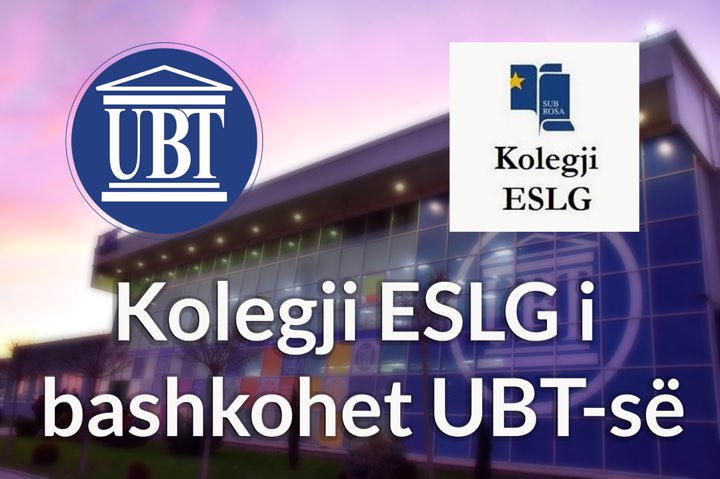Frequently asked questions
1. How is the teaching evaluated? Who makes this assessment and how are the results published?
The evaluation of the course and the professor is mandatory and is done by all students in the electronic grading system before the student looks at the grade in order to eliminate any subjective evaluation of the course and professor influenced by the grade. The evaluation of the course and the professor along with all other evaluations are published online on the website and not only professors but also students and other stakeholders can view them. The evaluation data of professors and the course are analyzed by the Quality Office and are part of the annual quality reviews against performance indicators and other several-year reviews of program quality.
In addition to the subject evaluation and the professor, the students also evaluate the whole program, which is also mandatory and comes out to the students before joining the electronic grading system.
Student evaluation of the entire program is subject to quality review for the entire program from the perspective of current students, alumni and industry which is followed by a quality improvement plan and development plan based on the recommendations derived from the quality improvement plan.
In addition to the evaluation of the program by the students, the program is also evaluated by the staff, alumni and industry separately.
The academic staff also performs self-evaluation of the achievement of learning outcomes which is followed by a report on the achievement of learning outcomes from self-critical evaluation of professors, quality improvement plan and a development plan based on the issued recommendations.
2. What are the criteria for publishing the results and how do you deal with professors who are poorly evaluated?
The evaluation standard is 4.0 on grades from 1.0 to 5.0. and each average grade of course and professor assessment under grade 4.0 is subject to qualitative assessment and qualitative interviews which are held in the form of student hearings held with a wider representative sample (not only students facing problems but also with good students in order to enable transfer of best practices), where all students show why they have given a poorer grade for the subject and the professor.
Professors concluded with poor assessment even after the hearing are advised to make certain changes required by the students and they are encouraged to attend pedagogical skills trainings, which are held and have been held internally at ESLG.
This evaluation is also part of the performance evaluation and academic promotion of the academic staff to higher academic titles where the points obtained in the pedagogical skills have a certain weight.
3. Do other evaluation platforms and forms exist for the needs of staff and students?
The evaluation of the program by the staff is done in the electronic grading system immediately after logging in the grading system where the staff makes an assessment for the whole program.
4. The role of students in quality assurance decision-making?
Students participate in the approval of quality reviews of program implementation and participate in the procedure for approval / updating of curricula of new and existing curricula and in the Quality Commission. Students give their opinion and approve any internal quality review.
5. How is the Quality Assurance Office organized?
The Quality Assurance Office is composed of the Quality Assurance Manager and an officer who prepares quality reviews and submits them to the Quality Commission for approval, in which the students are also represented.
6. How is the quality assured? How are student assessments (questionnaires) organized?
Student evaluations are conducted online through the electronic grading system before the grade for the course is seen by the student and immediately after logging in the system at the end of the academic year for the entire program.
7. Are there special persons who deal with quality control in ESLG and who decides on lecturers and assistants?
The Quality Office and the Quality Commission are the bodies that deal with quality control in ESLG, which is done through internal quality reviews from all points of view (students, staff, aluminum and industry) followed by quality improvement plans and development plans detailing who is responsible for implementing which particular step.
8. What is the way the academic staff receives feedback regarding its academic contribution?
Student evaluations for academic staff are all online and transparent. ESLG College has full transparency where all stakeholders can see students' anonymous assessments of staff. By increasing transparency, students also get the impression that there is a culture of quality management in ESLG and that their voice is taken seriously.
Student evaluations are also taken into account during the promotion procedure to higher academic titles according to the Habilitation Regulation within the pedagogical activity of the staff.
The evaluation of staff performance by superiors (head of department, dean, rector, etc.) is also performed. The criteria for evaluating the performance of an academic staff are:
• Pedagogical activity;
• Research activity;
• Professional activity;
• Communication skills;
• Approach to work;
• Amount of work;
Within the pedagogical activity, the following elements are taken into account:
• Distribution of grades in the courses he/she teaches;
• Student satisfaction with the course and the professor;
• Achievement of learning outcomes;
• Use of innovative teaching methods;



